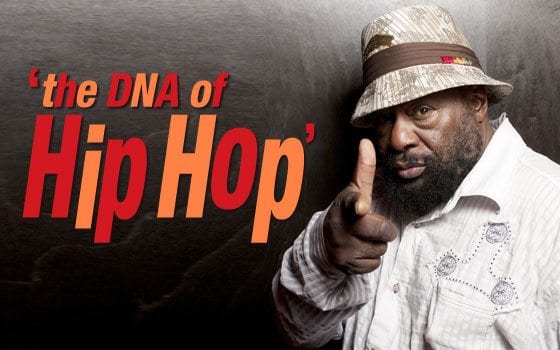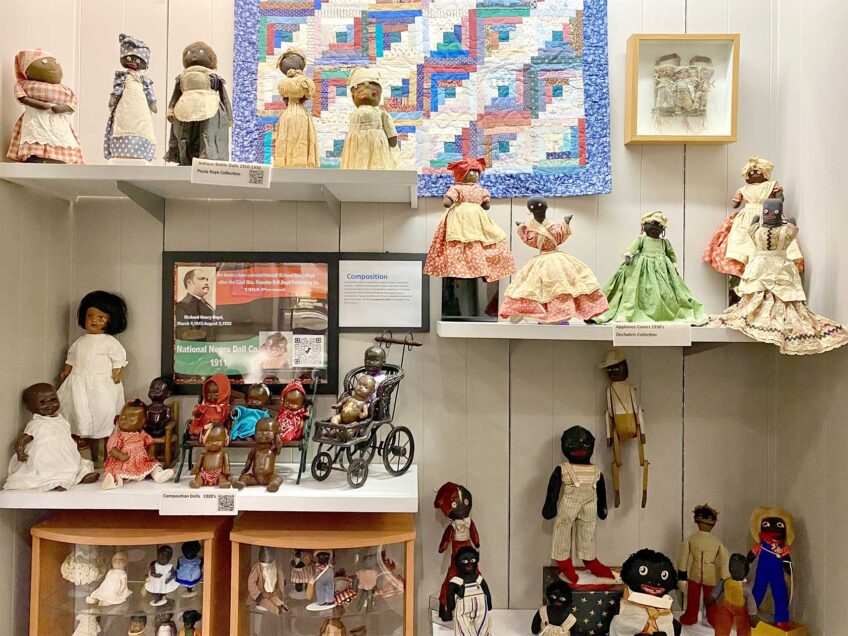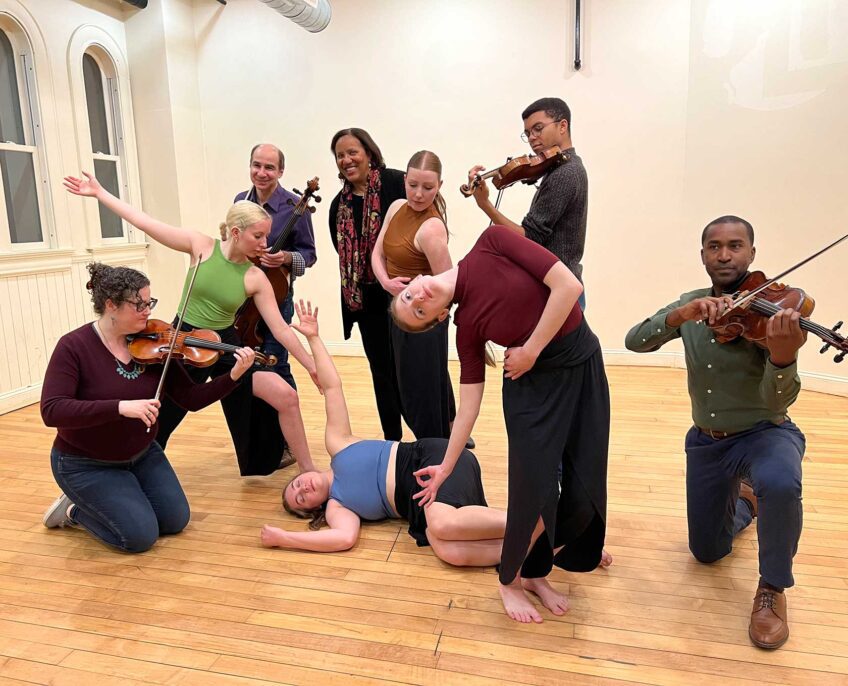George Clinton has produced some of the most sampled funk beats in the history of music and Berklee College of Music is showing him a little love.


William Thoren photo
George Clinton has produced some of the most sampled funk beats in the history of music and Berklee College of Music is showing him a little love.
Berklee College of Music will soon honor George Clinton, 70, with an honorary doctorate degree.
Known as the “DNA of Hip Hop,” Clinton and the music of Parliament Funkadelic has been sampled by Digital Underground, OutKast, Dr. Dre, Snoop Dogg, Busta Rhymes, Missy Elliot, De La Soul, Tupac, Fishbone and many others.
But Clinton, who is perhaps one of the most sampled artists alive, says that he and members of his group have not received fair compensation for the works that have been sampled. These days he’s using his blog and the hashtag Funkprobosci to educate, entertain and enlighten people on artists’ rights.
Clinton started his career with the Parliaments, a barbershop doo-wop ensemble, which scored a major hit with “I Wanna Testify” in 1967. Clinton then began experimenting with harmonies, melody and rhythm, and taking cues from the psychedelic movement, forever setting himself apart from the Motown era.
By the early 1970s, the group’s tight songs evolved into sprawling jams around funky rhythms. They dropped the “s” from the band name and Parliament was born. Around the same time, Clinton spawned Funkadelic, a rock group which fused psychedelic guitar distortion, bizarre sound effects and cosmological rants with danceable beats and booming bass lines.
Funkadelic recorded a number of influential concept albums, including “Free Your Mind and Your Ass Will Follow,” “Maggot Brain” and “America Eats Its Young.”
Parliament and Funkadelic captured 40 hit RandB singles, including No. 1 hits “Flashlight,” “One Nation Under a Groove,” “Aqua Boogie” and “(Not Just) Knee Deep.”
Clinton’s collaborators included keyboardist Bernie Worrell, guitarist Eddie Hazel, bassist Bootsy Collins, saxophonist Maceo Parker and trombonist Fred Wesley. On stage, spectacle ruled the day, with an enormous mothership, outrageous costumes and marathon performances.
In the 1980s, Clinton emerged as a successful solo artist. He released “Computer Games” with the No. 1 hit single “Atomic Dog,” produced The Red Hot Chili Peppers’ pioneering “Freaky Styley,” and signed with Prince’s Paisley Park label. He also began to experiment with the urban hip hop music scene, as a generation of rappers reared on P-Funk began to name-check him.
In 1997, Clinton and Parliament-Funkadelic were inducted into the Rock and Roll Hall of Fame, Guitar Center’s Hollywood Rock Walk and earned a Lifetime Achievement Award at the NAACP Image Awards.
In 2002, Spin voted Parliament-Funkadelic No. 6 of the 50 Greatest Bands of All Time.
What is the meaning of ‘proboscis’ and why is it following the funk?
That’s a big-nosed character in my music, Sir Nose D’Voidoffunk, who always tried to destroy the funk. That’s what we call a proboscis. We need somebody to beat on and we only just hit him with the Bop Gun and make him dance. But he’s always up to something no good. It’s also the name of our blog and it’s a way to let people know we’re not going to stand for what’s going on.
What’s really going on and does it have to do with the Copyright trolls?
Copyright trolls are people who confiscate the ownership of an artist’s music. We are trying to get Congress to enact some laws to keep people from arbitrarily changing the ownership of an artist’s creation.
What does Bill H.R.848 have to do with?
That is a bill going through congress that makes it possible for anybody involved in the creation of a record to get paid when the song is played on the radio. P-Funk Initiative supports it.
In most European countries, any artist that has a record out gets paid when it is played on the radio.
But in the United States the artists only gets paid for their performances. The United States, China, North Korea and Iran do not belong to the organization supporting this bill. The radio stations have been fighting it since the Frank Sinatra days. It’s getting close to where they might pass it this year.
The only thing in the way right now is Radio One because they’re making people think that Congress is calling it a tax, but it’s not a tax. It’s actually a royalty for the artist. There are a lot of artists whose songs are played on the radio every day and on commercials and they’re not getting paid for that, but the writers and publishers are getting paid.
On your blog, you said that the artists are actually being extorted. Can you explain what you mean?
For example, the song “The Humpty Hump,” it sampled one of my songs. That song was also sampled, too, and about a thousand times more than mine. The creator of the “Humpty” song didn’t even know that it was being sampled.
In the movie starring Brad Pitt, “Money Ball,” there is a key scene in it where they play “Tear the Roof Off.” Universal Records did not tell us that the song had been sampled. We fought with them to admit that they licensed it to the moviemakers. We only found out about it when we saw the movie and heard the song. We have lawyers dealing with that now.
When did your legal battles involving copyright infringement begin?
Probably 10 years ago. I now discovered that there are about 2,000 songs that have been recorded using my music.
Most of the rappers have to pay through their royalties to use the music, but they never paid the writers that worked for me. There are at least 35-40 writers that never got paid a cent. Some of them have died, and their heirs haven’t gotten paid a cent.
They’ve actually gotten away with changing the copyright names. We’ve been sharing information with all of the writers. Most rock and roll artists, black or white, don’t have a clue that the ownership rights of their music have changed and that their music is worth a lot of money around the world because it’s one world with the Internet. People download music in China and everywhere else.
Looking back on the ’70s and ’80s and the success of so many African American groups, like Funkadelics, the Commodores, O’Jays, Ohio Players, do you foresee that kind of era returning to the American music scene?
That’s what hip hop is today. It’s mostly samples of the music produced by those groups. It’s the same train. Funk is the DNA of hip hop and that’s why we’re so close to the rap groups and they’re becoming more and more involved with old school (that’s what they call it) and RandB. There are a lot of European funk bands on the rise today and it’s all making it’s way back to the source.
What was there before Funk?
I don’t know what there was before Funk because it’s been around a long time. We were probably the first to use the name, and the word. Motown was playing funk before it ever was what it was. They had a lot of funky records, and before that you had James Brown, and a lot of the blues songs from the forties were funky.
We just made the word popular because they took ‘Rock’ and made it so commercial to the point that no one could become a part of it if it wasn’t Rock and Roll.
So we did a fresh crop and made it accessible to everybody with Funk. At that point they started changing the name, calling it Soft Rock and Hard Rock and separating it from everybody. When it started out, it was for everybody from Chuck Berry, Jerry Lee Lewis and Elvis Pressley — they were all Rock and Roll.
In your opinion, which contemporary group or artist is carrying on the legacy of funk in their music?
Most of them are the hip hop musicians, like MandM and Mystical and L’il Wayne. You also have some funk bands that have not had too many hit records, but they’re still carrying the funk.
George Clinton Meets Berklee takes place on Feb. 16, 8:15 p.m., at the Berklee Performance Center, 136 Massachusetts Ave., Boston. General admission tickets are $20 and $15. Purchase tickets at berkleebpc.com, call 617-747-2261 or visit the BPC Box Office.
The Wilbur Theatre presents George Clinton and Parliament Funkadelic, Thursday, February 9, 2012 at 8:00pm. The Wilbur Theatre is located at 246 Tremont St. in Boston’s Historic Theatre District. Tickets: $32.50 – $39.50. To purchase tickets log on to thewilbur.com or call Ticketmaster 1-800-745-3000. For more information on George Clinton and Parliament Funkadelic visit georgeclinton.com.




![Banner [Virtual] Art Gallery](https://baystatebanner.com/wp-content/uploads/2024/04/NJ-H_1-713x848.jpg)
